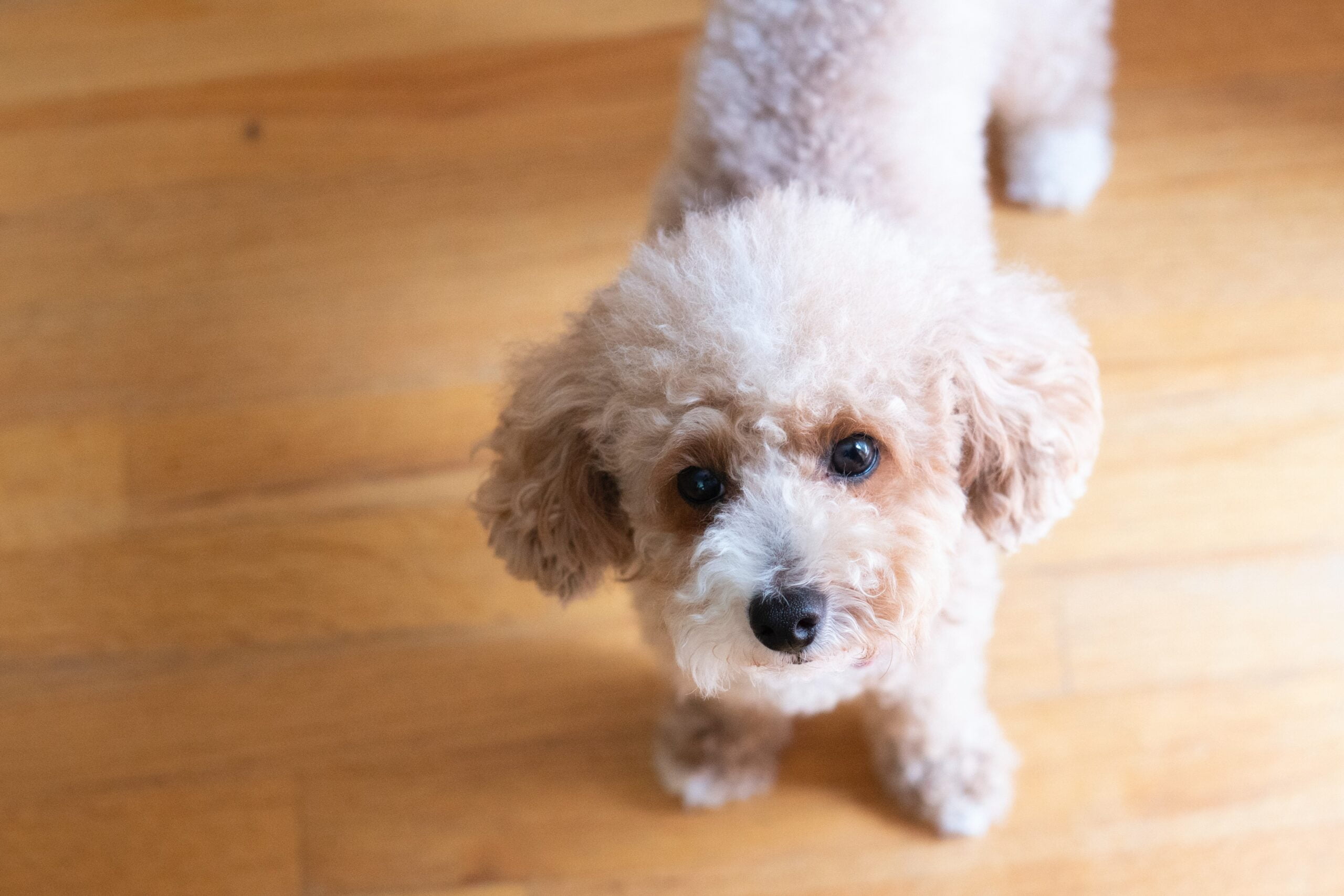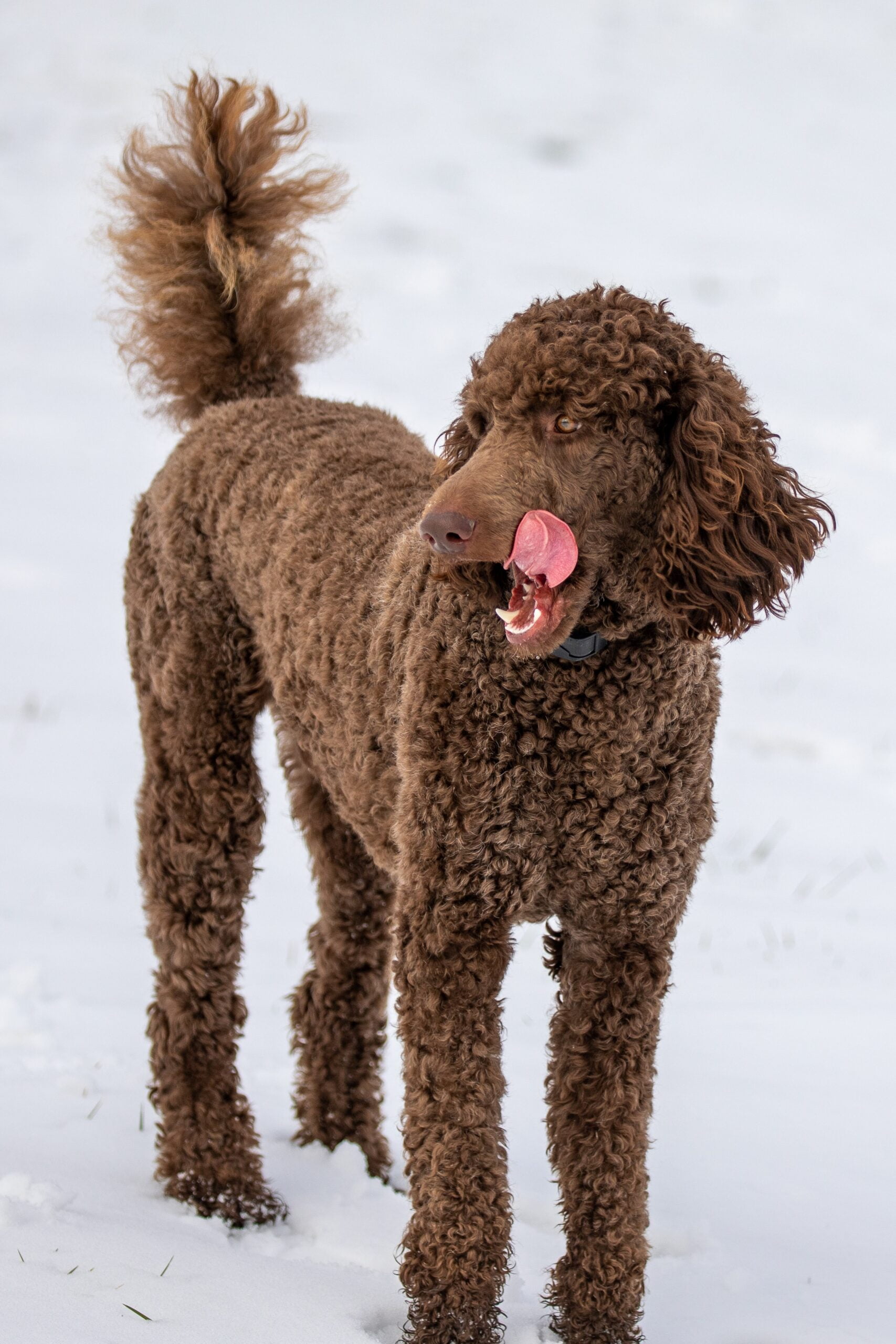
The Bichon Frise, characterized by its fluffy white coat and cheerful demeanor, is a small toy breed with Mediterranean origins, specifically from the Tenerife region. This captivating little dog, with its tight curls and sparkling eyes, historically charmed the courts of Europe, becoming a favorite among royalty. Though petite in size, the Bichon Frise is known for its resilient and playful nature, often exuding a lively spirit that belies its delicate appearance. Beyond its regal past, it has become a treasured family companion, particularly praised for its hypoallergenic coat and its affectionate disposition.
The Bichon Frise is a member of the AKC Non-Sporting Group.
Breed Characteristics
| Dog Breed | Bichon Frise |
| Breed Popularity (AKC) | 47 |
| Country of Origin | France |
| Personality | Playful, affectionate, intelligent, social |
| Life Expectancy | 14-15 yrs |
| Height | 10-12 in |
| Weight | 12-18 lbs |
| Color | White |
| Coat | Long, double, curly |
| Shedding | Infrequent |
| Grooming | Specialty/Professional |
| Health Problems | Dental problems, eye problems, bladder stones |
| Trainability | Agreeable |
| Exercise Needs | Regular Exercise |
Bichon Frise History
The Bichon Frise, with roots in the Mediterranean, was developed in the Canary Islands and brought to Europe by traders. By the 13th century, they had found favor with European royalty, especially in France. ‘Bichon’ is derived from a word meaning ‘small dog’, and ‘Frise’ refers to their curly coat. Often mistaken for the poodle, they’re recognized for their cheerful disposition and white, puffball appearance.
Temperament
Bichon Frises are cheerful and playful. Their small size and adaptable nature make them ideal for various living environments. They are intelligent and eager to please, aiding in trainability. Their behavior is friendly, often getting along well with children and other pets. They have a moderate energy level, enjoying short play sessions. Barking tendencies can be high, especially when seeking attention or alerting their families. They thrive on human interaction and can be quite affectionate.
Remember, while breed traits provide a general idea, individual dogs can have personalities that differ from the breed standard. Always spend time getting to know the dog and ensure their needs and temperament align with your lifestyle.
Grooming Requirements
Bichon Frises are recognized for their soft, curly coat that requires regular brushing to prevent matting. Bathing with a gentle dog shampoo helps maintain their coat’s health and brightness. Along with brushing and bathing, nail trimming, ear cleaning, and regular eye checks are crucial.
Bichon Frise Health
Bichon Frises live for about 12-15 years. Health routines like vaccination, flea prevention, and deworming are critical. They can be susceptible to allergies, which can be managed with a well-balanced diet, quality dog food, and nutritious treats. Neutering or spaying is often recommended for household Bichons.
Exercise Needs
Bichon Frises are playful and affectionate dogs. Regular short walks paired with indoor play sessions suffice for their exercise needs. Fetch games and agility exercises tailored to their size can be engaging. They may enjoy dog park trips for socialization, but their interactions should be monitored due to their small size.
Training
Bichon Frises, with their curly coats and cheerful disposition, benefit from gentle obedience training. Clear commands facilitate potty training, and crate training provides them a cozy abode. Addressing behavior problems, especially their occasional stubbornness, is essential. Regular socialization ensures they’re friendly, avoiding the ‘small dog syndrome’.
Bichon Frise Pictures
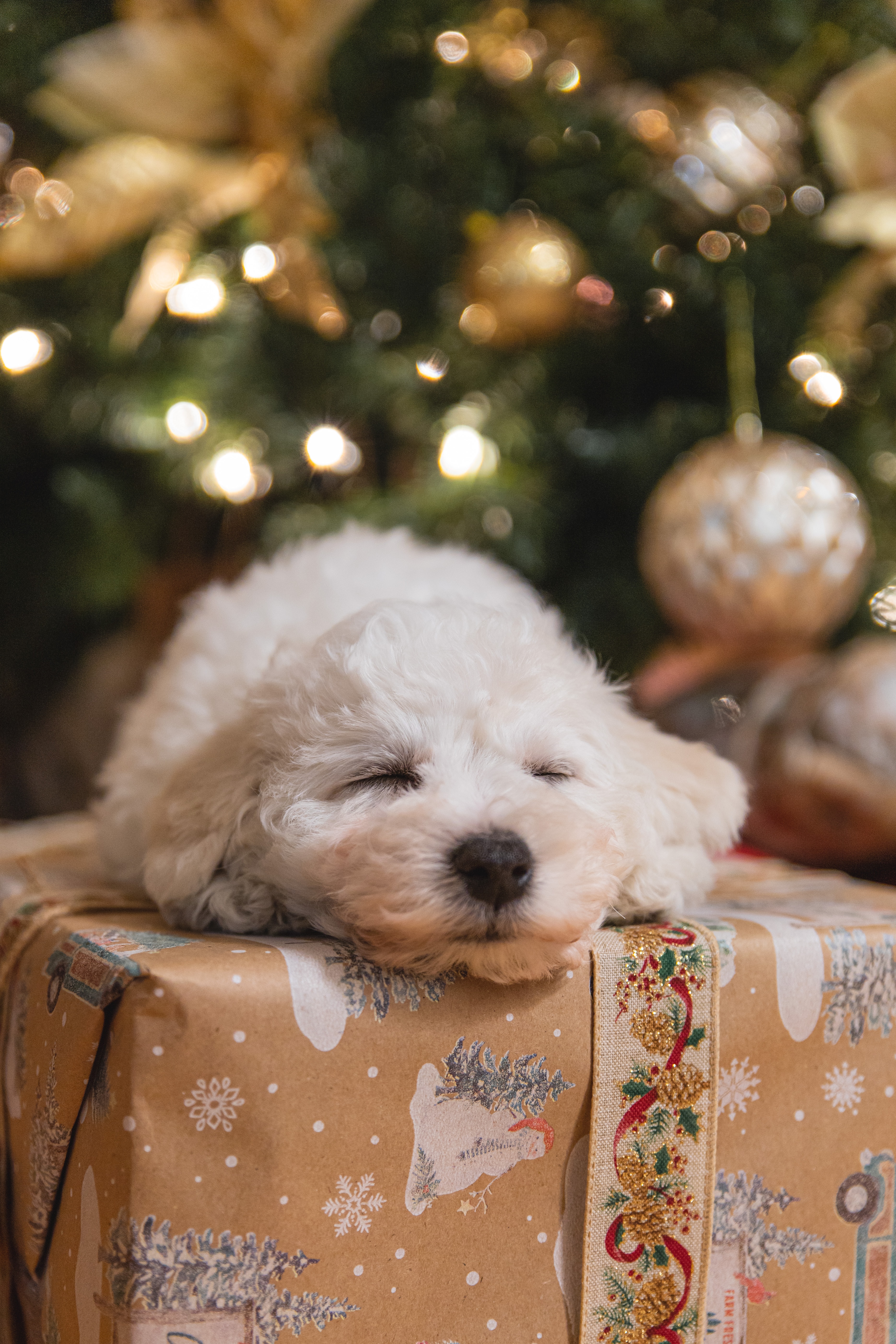
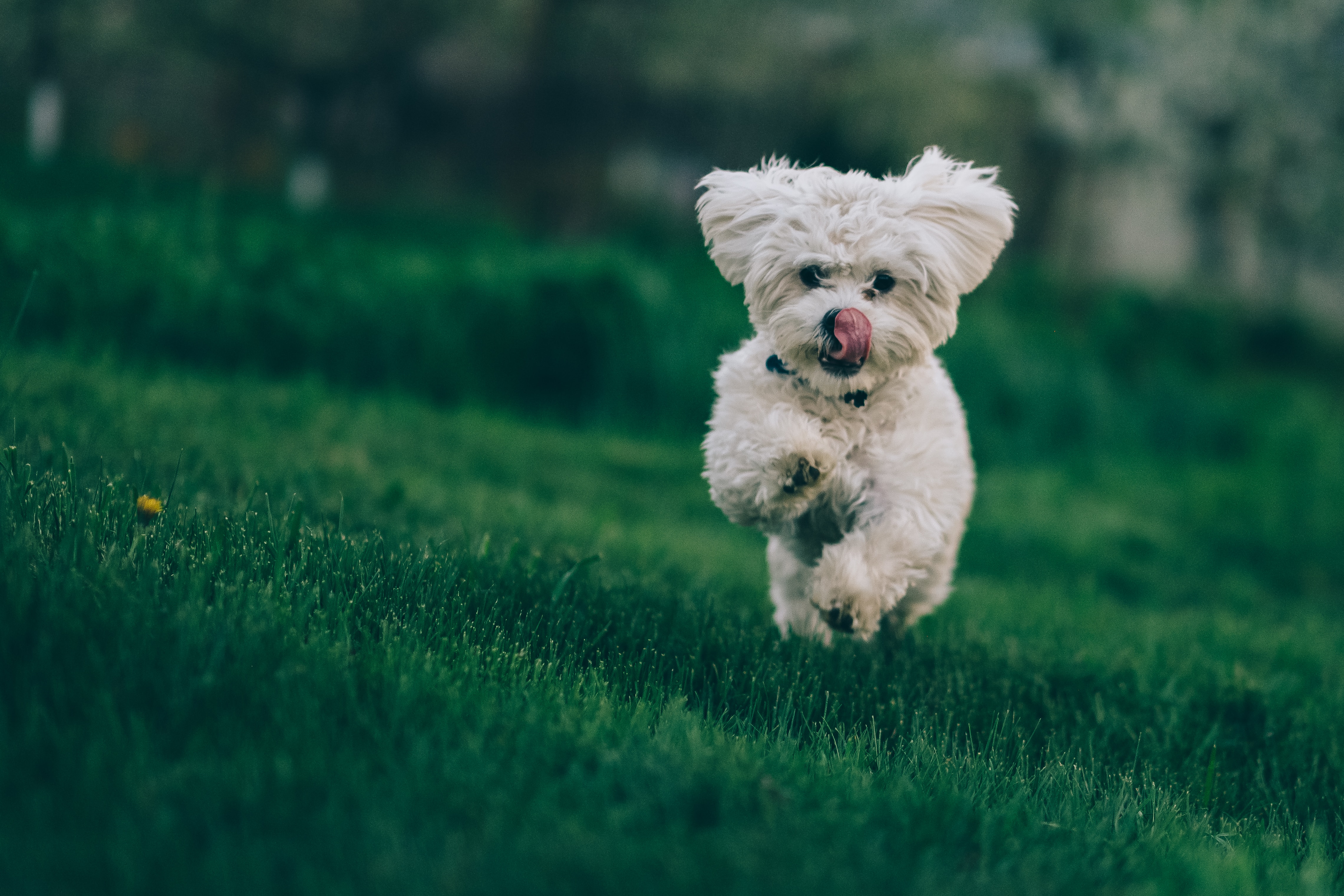
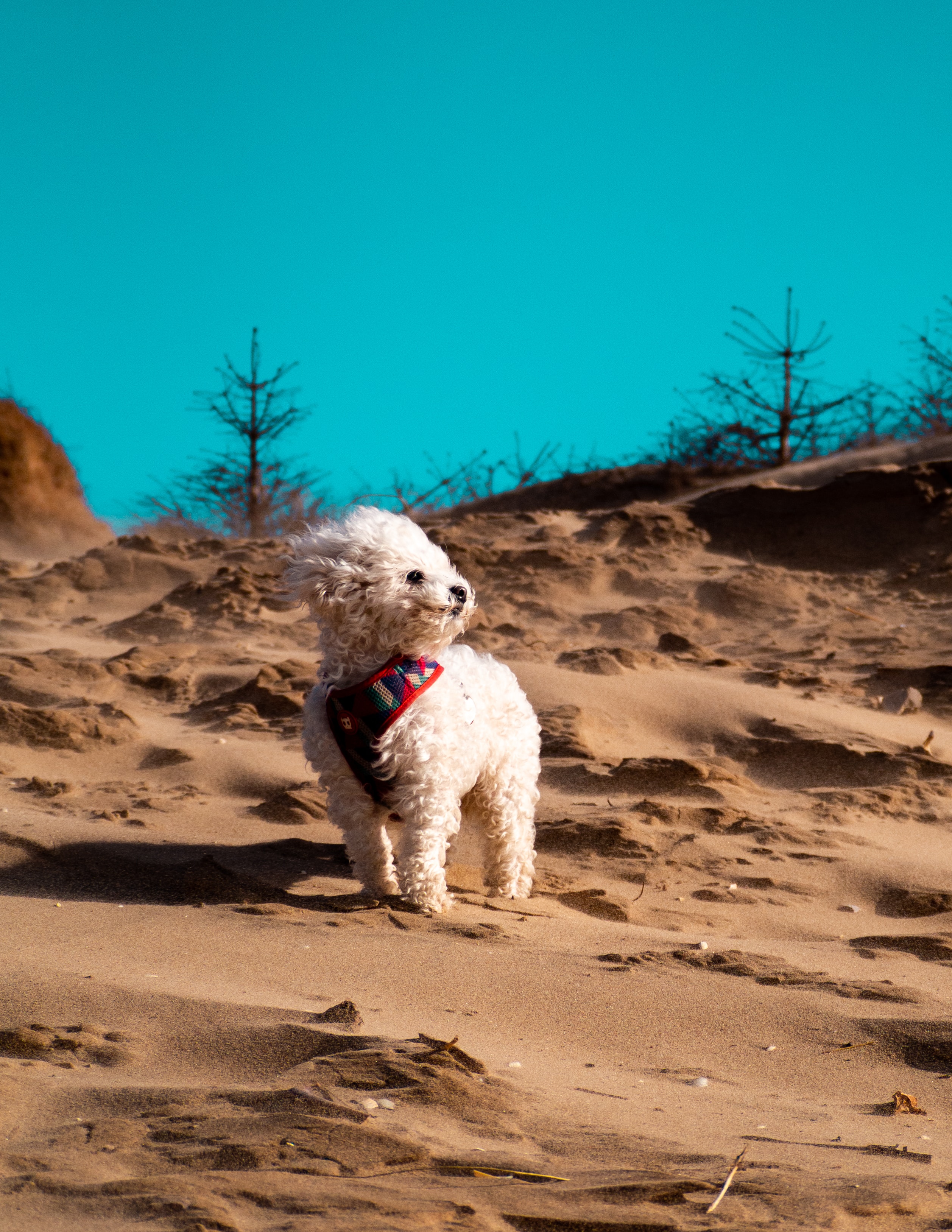
Related Dog Breeds
More Dog Resources
Are you thinking about getting a puppy? Make sure to check out our list of important questions to ask before you adopt a puppy.
We also have many resources to help, from naming your puppy to socialization resources and training tips.
Take me back to the Ultimate Guide to Dog Breeds


